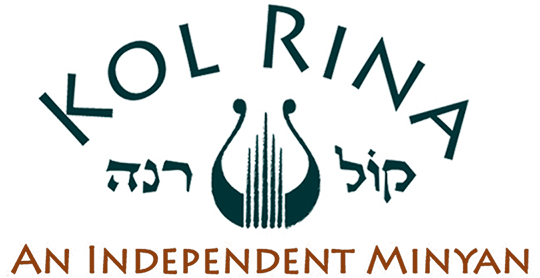Uniting to Serve God Wholeheartedly
Ahad Ha-Am once said that Judaism produces two kinds of spiritual leaders—the priest and the prophet. These two types were very well represented in our Torah portion and our haftarah that we just read. Between them, they present two different but (I will argue) complementary conceptions of the core meaning of this day of Yom Kippur.
The priestly conception is that of a ritual purging (and that is one of the root meanings of the word kippur). I have come to understand this with the help of the excellent commentaries on Leviticus by the late Jacob Milgrom, who was the outstanding scholar of the priestly literature of the Bible in the past generation. According to this conception, the sins of the people lie like a pollution on the sanctuary of God in the midst of the people. It is the duty of the priests to perform rituals of purification that will expiate the sins and remove the tum’ah, the uncleanliness, from the sanctuary and from the people. Chatat is generally translated “sin-offering” but Milgrom understands it as a form of purification. There are individual chatat offerings for the single sins of individuals. On Yom Kippur, there is a collective chatat offering brought by the High Priest on behalf of the entire people. In addition—most dramatically—the guilt of the people for all their sins is loaded on the body of a goat and sent off into the wilderness, to Azazel. Gone! No more sins.
What kind of sins are spoken of here? Probably all sins, from the most trivial to the most serious. Elsewhere in the Biblical narrative, we are told how the serious sins—especially bloodshed—lie heavily on the land. God tells Cain, “Your brother’s blood is crying out to Me from the ground!” The weight of murder is so serious that it can only be expiated by the death of the murderer, a notion that still has the power to influence people in the criminal justice system to this day. Accidental homicide is expiated by exile: the person who committed it must go to one of the Cities of Refuge—until when? Until the death of the High Priest. Here too, Milgrom says, we see the key role of the High Priest as bearing responsibility for the spiritual health of the entire nation. His death seems to expiate the remaining pollution from all accidental homicides; now the slate is clean and the unwitting perpetrators are free to go back where they came from and start life anew.
We turn to the Haftarah, and the emphasis has been shifted from the ritual to the ethical. “Is this the fast I have chosen? To bow your head like a bulrush? No! Rather— unlock fetters of wickedness, untie the cords of the yoke, let the oppressed go free, share your bread with the hungry, when you see the naked, clothe him.” (Isaiah 58:6-7)
Much has been written and said about what is the essence of the prophetic teaching. There is a debate as to whether the prophets wanted to totally replace the ritual worship of God with just living an ethical life, or whether they wanted to keep the ritual in place but stress that the ritual is second place in importance, and ethics is in first place. I don’t want to settle that debate today. I do want to put on the record my view that the prophets wanted to simplify the notion of what God’s demands of us are. They definitely put ethics in the first place. Moreover, for them, ethics was of absolute importance in God’s eyes, and ritual was only of relative importance, a means to an end, where the end itself was ethical behavior and creating a good, just, and benevolent society.
The essence of this message was expressed in the words of Rabban Gamaliel of the 3rd century (the son of Rabbi Yehuda Ha-Nasi): “Do God’s will as if it were yours, so that God will do your will as if it were His.” (Avot 2:4) The fundamental ethical demand is to put God’s will at the top of our priorities. We live our life as a gift from God. If we see things in this perspective, then we are not living primarily to achieve our selfish goals, but primarily to see God’s purpose achieved in this world. My own happiness may be a small part of God’s purpose. But it must be achieved in a way that is harmonious with the happiness of all the rest of God’s creatures. If we live our lives in this spirit, then we will be seeking the harmonious fulfillment of everyone’s needs and goals, in a society regulated by principles of justice and benevolence. This is the prophet’s vision—to achieve this kind of harmonious, just, and benevolent society. “Then the world will be filled with knowledge of God, as the waters cover the sea.”
As we make our way through the Yom Kippur prayers, the ancient debate comes up in another form. What are we doing here? And what sins are we repenting for? Are we here to confess every possible sin that we could have done—list upon list? Or is there one large, overarching purpose that unites all the themes of the day and a unifying message that sounds loud and clear?
The answer, of course, is both. You probably know by now that Yom Kippur (like any piece of Judaism) is complex and woven of many strands, developed over centuries and millennia by generations of teachers, poets, and ordinary Jews. There will never be a single formula that will encompass everything without remainder. But still, I want to communicate one of those large, unifying messages that I believe accounts for a very great deal of the diversity of materials that comprise today’s liturgy.
Exhibit A comes from the u-v’chen paragraph of the Amidah: “Lord, our God, let all Your creatures sense Your awesome power, let all that You have fashioned stand in fear and trembling. Let all of them unite in a single band, to perform Your will wholeheartedly.” This paragraph—repeated in every prayer service of Rosh Hashanah and Yom Kippur—shows the continuity of rabbinic Judaism with the prophetic vision. It reminds me of Isaiah’s prophecy, that all nations shall come together to learn God’s law, whereupon they will beat their swords into ploughshares, and nation shall not lift up sword against nation—a vision that is inscribed on the cornerstone of the United Nations. In a word: it envisages a world in which all humanity will unite to live in accordance with God’s will, making that their top priority.
Exhibit B comes from the Al Chet confessional, which we recited last night and this morning and will recite two more times in the course of today’s services. Many of the particulars in the Al Chet confessional refer in the original Hebrew to the posture of parts of our body—“for the sin we have sinned against You through hardening our hearts…uncleanness of our lips…hardening of our foreheads…frivolity of our heads…hardening of our necks…interference of our hands…confusion of our hearts.” I see these as all failure of the will, failure to direct our will in furtherance of God’s will. We need to train all parts of our body to a common goal, in service of God. (The English translation loses this flavor by more idiomatic rendering—“being heartless, foul speech, effrontery, irreverence, stubbornness, breach of trust, dismay.” Even here, we sense that it is our fundamental relation to God that is spoken of, as manifested in a lot of general attitudes that find expression in a multitude of behaviors.
The fundamental issue facing us—the fundamental “teshuvah” (turning / repentance) required of us on this day—is to stop putting ourselves at the center of our priorities, and to start putting God at the center. But God’s purpose embraces us all—all Jews, all humanity, all life, all existence. So to put God at the center is to see a unified purpose embracing all existence, and to live our lives so as to contribute harmoniously to the good of all.
How much of the bitterness and strife in the world is the fruit of egocentricity! On the personal level, how many relationships are in difficulty because people battle about the rights and prerogatives of the “I” instead of focusing on the common goals of the “we”! On the political level, how much discord is generated by social and economic groups jealously guarding their own narrow interests and prerogatives instead of asking how they can cooperate for the good of society as a whole! On the international level, how many wars are fought because each nation (or sect or clan within a nation) sees only its own cause as sacred and just, instead of seeing all humanity as God’s children, and uniting in a single band to perform God’s will wholeheartedly
Whether on the level of the family, the society, or the international arena, we often experience the fruits of disharmony and strife as a pollution, a toxic residue. When people are caught up in how to make their own private will or sectarian interest prevail, it is inevitable that too much energy will be spent on tearing down their opponents, generating conflict and discord, bitterness and hostility. How much time and energy is wasted, how many lives are wasted in the world today, in pursuing these divisive strategies! When things have come to such a pass, it seems that a collective purgation is called for. Wouldn’t it be nice if we could just take all these hostilities and put them on the head of a goat, send it into the wilderness, and be rid of them!
But we know that the only true solution to such problems must come from within. Individuals and groups must undergo a teshuvah, a turning, so that instead of directing their wills in self-aggrandizement and knocking down their opponents, they turn to each other in reconciliation and mutual forgiveness and seek the larger good, the collective good, the harmony of the whole. The notion of God’s will stands as a symbol of this larger good, transcending all private and sectarian interests, seeing us all working out our differences and striving together towards common ends.
The Yiddish writer Chaim Zhitlovsky compared the world family of nations to an orchestra. Each instrument in the orchestra has a different timbre and tonal quality. When each one strives to dominate, to make its voice overpower the others, the result is harsh discord. But when each contributes its part modestly to a common goal, they blend harmoniously and make beautiful music together.
The task facing us today is to unite our will with God’s will, so that we may all cooperate, so that our partners, our families, our society, and all nations of the world may subordinate our egos and join harmoniously in a common purpose. God created a glorious world and made us the stewards of it. May we unite, to live in harmony, to realize its potential and bring that divine purpose to fruition!
Gemar Hatimah Tovah.


